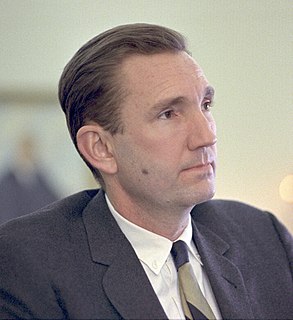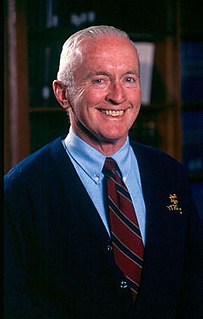A Quote by Brian Tracy
In times of turbulence and rapid change, you must constantly be re-evaluating yourself relative to the new realities.
Quote Topics
Related Quotes
Approach each new problem not with a view of finding what you hope will be there, but to get the truth, the realities that must be grappled with. You may not like what you find. In that case you are entitled to try to change it. But do not deceive yourself as to what you do find to be the facts of the situation.
I don't mean to imply that we are in imminent danger of being wiped off the face of the earth - at least, not on account of global warming. But climate change does confront us with profound new realities. We face these new realities as a nation, as members of the world community, as consumers, as producers, and as investors. And unless we do a better job of adjusting to these new realities, we will pay a heavy price. We may not suffer the fate of the dinosaurs. But there will be a toll on our environment and on our economy, and the toll will rise higher with each new generation.
When we find ourselves in the same situation repeatedly as a result of our conditioned responses, we must stop and do a new thing. The situation may look different. The route we take there may be altogether different. The lesson we must learn does not change. Get honest! Pay attention! Change what you do to create a change for yourself!
Think of managing change as an adventure. It tests your skills and abilities. It brings forth talent that may have been dormant. Change is also a training ground for leadership. When we think of leaders, we remember times of change, innovation, and conflict. Leadership is often about shaping a new way of life. To do that, you must advance change, take risks, and accept responsibility for making change happen.



































